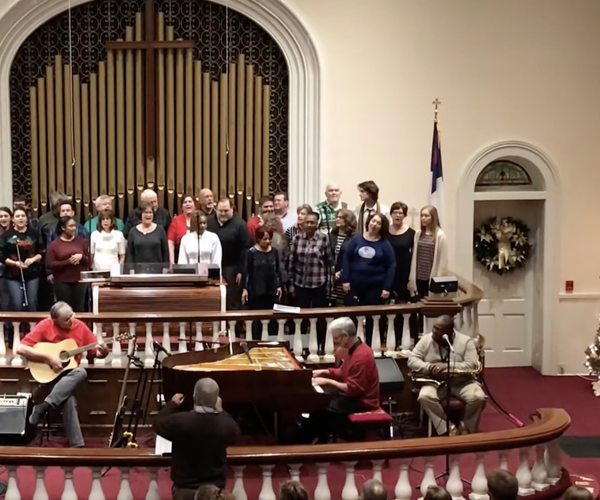All around are stones. The buildings are mason-crafted from sandstone. Many of the street walks are cobbled in smooth rock. And the land of Edinburgh is itself a mass of stone, a fortress of a city spied upon by the castle at the heights. This is Scotland’s capital, and it’s been my temporary home for a week after an overnight sleeper train from London. E dinburgh is Scotland, and Scotland has been a mystery all my life, until now. It’s not that I have decoded all of Scotland’s mysteries; it’s just that the land and the stones have become a home, and a home cannot remain a mystery. In Scotland, I have found the comfort of familiarity.
McCoy is a name of Scottish origin, and I’ve had a lifelong desire to know more of my roots. We know our line came to America by way of Ireland, as did many of the Scots-Irish who settled America. We were a fierce Protestant lot, as you’d expect when one of your relatives was named Martin Luther McCoy. When I visited Ireland, I tried to find myself, to see what of the land I recognized. I saw temper, a classic McCoy trait, when my cabbie and a bicyclist almost started boxing. I wondered which of the Dubliners could be distant cousins and just how many of the old clichés were actually true. And I wondered about Scotland, the origin point of our name. Now, a decade later, I’m in Scotland, recognizing much in a land I’ve never seen before.
I recognize the stones. To be clear, I recognize the love of stone and brick and sturdiness. My father always favored brick over wood and so do I. It must be in our blood to know that stone is permanent and wood is feeble and an invitation for rot. Did we get this knowledge from Scotland? And I’ve mentioned my Protestant roots. Did we get this gift from John Knox? I saw his house yesterday. I’ve also seen where he studied under Calvin in Geneva. Is my Protestant faith attributable to the past resident of an Edinburgh house? I don’t know, but it's likely. As I walked around Edinburgh, I tried to recognize more. Do I know these faces? Do I understand these quirks? How much of this country is deep in my blood? The more I looked, the more I liked what I saw. And I was serenaded by the lilting voices of the city. In the south, we have our dialects and our vocal beauty. I heard a different beauty here, spoken all around the city.
Today, I hiked the mass of stones to reach Edinburgh Castle, a fortress of simple yet utterly effective defense. As I was on my way to the castle, I wondered if I should bother to go there. My historical Scottish McCoys were unlikely to have been invited inside any castle gates unless there was a drain to unclog, or a stone to cut, or a big oak door to repair. I know I come from a long line of doers and manual laborers, so I thought I’d be better off going to one of the museums to see if they had a display of ancient brooms, rakes, shears, and hammers. I would recognize those. And they would likely recognize fresh McCoy blood and sinew and jump from the display cases into my hands. No. I couldn’t risk that spectacle. So even though the insides of a castle wouldn't recall the footsteps of my line, I went to the top of the stones, bought my entry ticket and spent far too much time admiring the walls and doors, far too little recognizing anything to do with royalty or luxury.
Now I’m ready to return to London on the Caledonian Sleeper, called away by the calendar, but not by the heart. If I could stay a few months in Edinburgh, I’d be happy. I’d learn the lilt. I’d cover myself in the same wool creations that warm the residents. I’d haunt the city and the museums and the pubs, meeting ancient cousins and telling stories from Georgia. History tells me my line of McCoy cousins would recognize the public houses long before they’d recognize the insides of a castle. Pubs, like the one I’m sitting in right now, have always catered to guests who know about brooms, and hammers, and shears. We are the common royalty, who live far below the castles and palaces. And I am a guest today, sitting at table 10 in The Conan Doyle pub on a beautiful, warm May Day, drinking a pint of Aspall cider, and admiring the week of royal treatment I’ve received from the pub's staff and the city's residents. This column is a postcard from Edinburgh, from a McCoy cousin who has been well-treated and honored on his return to the homeland he’s never before visited and yet, one he has always known deep in his blood.
David McCoy is a lifetime resident of “The Glorious South” and a repeat winner of the Georgia Press Association's Joe Parham Trophy for his humor column, Pecan Pie for the Mind. David lives in Covington, Georgia but can often be found among the North Georgia mountains, depending on the weather and the availability of clean towels and fresh, hot coffee. He can be reached at news@covnews.com.





